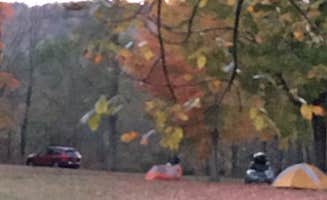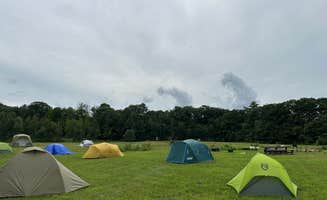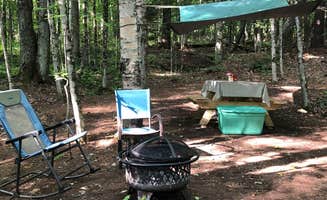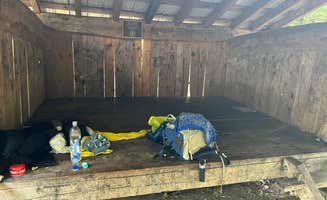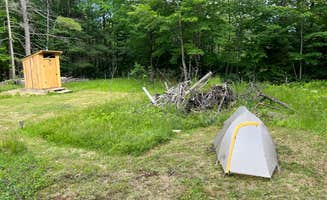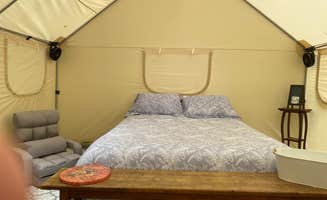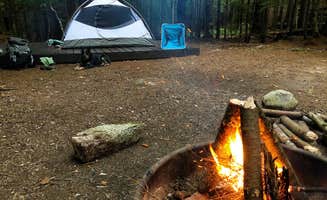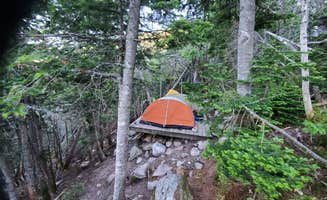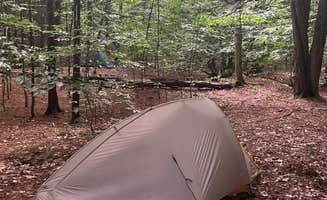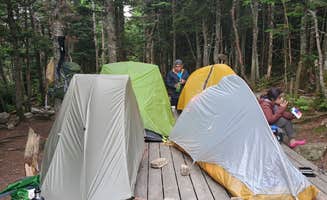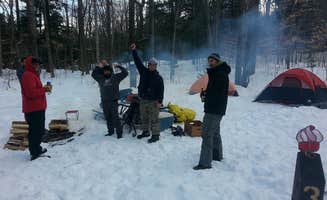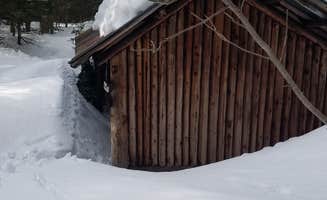Primitive camping options surrounding Rumney, New Hampshire offer access to the Baker River valley with elevations ranging from 500 to 3,000 feet. The region experiences typical New England seasonal variations with summer temperatures averaging 70-85°F during the day and 50-60°F at night. During peak climbing season (May-October), campsites near popular crags often fill by Friday afternoon, requiring midweek arrival for prime spots.
What to do
Climbing access: The AAC Rattlesnake Campground provides dedicated accommodations for rock climbers visiting Rumney's world-class sport climbing routes. "Maintained by the American Alpine Club, pretty much all the campers here are rock climbers," notes Les R., highlighting the specialized nature of this facility.
Mountaintop views: A moderate hike to Mt. Cardigan offers rewarding panoramas from the fire tower at the summit. "Great spot to spend the night before a climb of Mt. Cardigan! Or after! The climb is challenging but shouldn't take too long," shares Madison G. about Cardigan Campsites, which serves as an ideal basecamp.
Water activities: Local ponds and streams provide swimming and fishing opportunities throughout the warmer months. At Baker Rocks, one camper mentioned that despite limited fishing success, the riverside setting offers recreational opportunities: "I only caught a few minnows when fishing but that may have been more to do with the angler."
What campers like
Platform camping: Many backcountry sites feature raised wooden platforms that keep tents dry and level. At Guyot Shelter, "Some are very isolated and some with great views," according to Jerome S., who appreciated the variety of platform options available.
Natural water sources: Spring-fed streams provide drinking water at most backcountry sites, though filtering is necessary. One camper at Guyot noted "Great Water source right near the eating area," making meal preparation more convenient after a long day of hiking.
Stargazing opportunities: Clear nights away from light pollution create exceptional astronomical viewing. At Sawyer Pond, Erin H. was particularly impressed: "The stars were AMAZING. You do have to forage for firewood, which can be rough, but there's a fire pit right in front of the lean to. I've never seen stars like I did here, all around the pond."
What you should know
Limited firewood: Many campsites require collecting your own wood or bringing it in. At Sawyer Pond, one camper observed "there was very little available firewood near the campsites," suggesting campers arrive prepared with alternative cooking methods.
Water treatment required: Backcountry water sources need filtering or treatment. According to Sarah C., when visiting Rogers Ledge: "There is a nice water source .1 miles from the campsite has an easily accessible flow. So no need to hike in with a ton of water."
Seasonal road closures: Access to some camping areas becomes limited during mud season (spring thaw). Regarding Sawyer Pond, Jean C. advises: "Check the White Mountain National Forest website for information about road openings in the spring and fall."
Wildlife awareness: The region has active bear populations requiring proper food storage. Multiple campgrounds provide bear boxes or hanging systems, with one Rogers Ledge visitor noting "Plan to hang your food due to bears."
Tips for camping with families
Beginner-friendly backpacking: Sawyer Pond offers an excellent introduction to overnight hiking for children. "This is a great beginner backpacking trip, great even for kids! The site has one shelter and 6 campsites available on the bank of Sawyer Pond," shares Sarah C.
Short hiking distances: Some backcountry sites require minimal hiking to reach. Hunter P. noted about Sawyer Pond: "The hike from the parking lot to the campsite was 1.5 miles and pretty easy. It is mostly flat with a few minor hills (I saw children and elderly folks easily using this trail)."
Animal encounters: Some campgrounds feature farm animals that children can visit. April W. mentioned that at Baker Rocks: "They even have animals to visit like bunnies and goats (far away from the campsites). Do bring bug spray, the mosquitoes at certain times of day were aggressive, as to be expected."
Platform advantages: Tent platforms keep families dry and comfortable during unpredictable weather. At Baker Rocks, Justin P. observed: "The site had a large tent platform they could fit multiple tents, a brand new picnic table, a fire ring (with a free bundle of firewood), two chairs by the fire ring."
Tips from RVers
Limited hookup options: Tent camping dominates around Rumney, with minimal RV infrastructure available. Most established campgrounds like Squam Lakes Association focus on tent camping, with one visitor noting: "We really enjoyed our stay here - we prefer tent camping and like to be secluded; we are not into RV parks."
Alternative accommodations: Several campgrounds offer cabin or yurt options for those seeking comfort without towing an RV. At Baker Rocks, April W. shared: "We stayed 2 nights in the double bell tent with two clean full size beds and a 3rd night in the yurt both were spacious and wonderful, among tall trees and pines."
Bathroom considerations: Facilities range from full bathhouses to primitive outhouses. Baker Rocks impressed one visitor with "a full bathhouse with individual rooms for showers and sink/toilets, with running water," while backcountry options typically feature composting toilets.


